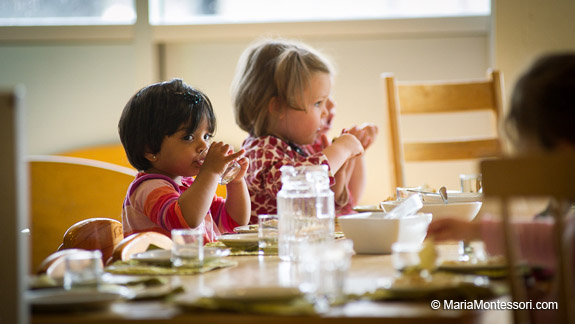Mistakes: we make them every day. Regardless of their magnitude, they all share one common characteristic: they teach.
“We learn from failure, not from success,” wrote Bram Stoker in Dracula. Mistakes are essential to our growth and development, and yet in our society, they are taboo. At some point in our lives, most of us have passed the buck instead of taking responsibility for our errors; in our culture, messing up isn’t something you readily acknowledge. Since we have such a negative view of failure, we try to protect our young children from making mistakes, and this is the biggest blunder of them all.
An entire industry of mistake-proof products for young children has sprung up in the past few years. There’s the snack bowl with the cross-cut plastic lid so that your child’s cereal doesn’t fall out if the bowl flips over; the ubiquitous sippy cup that doesn’t spill when knocked down; and even a spoon with a rotating handle so the food stays on the spoon no matter how your child turns his wrist! In addition to giving children a false sense of competency, all of these items and most toys on the market are made of plastic. Plastic doesn’t break easily… It also doesn’t teach.
In a Montessori classroom and home, emphasis is placed on using real objects for work and play. Glass breaks if dropped, so a child learns responsibility. Sharp corners poke if you bump into them, so a child develops self-control. Wood floors scratch if mistreated, so a child learns to move furniture carefully. Paper tears if tugged, so a child understands he must be gentle with books.
The child in a Montessori environment (at home or in school) is not punished or reprimanded for breaking an object, but the entire activity (aka, “material”) to which the object belonged is removed from the shelf until the object can be repaired or replaced. Because it is the only material of its kind on the shelf, the child understands that his classmates or siblings will now miss out on that activity. He develops a sense of social responsibility and accountability that no amount of preaching can instill.
My favorite moment as a Children’s House guide is when a child approaches a Practical Life material that he has once broken accidentally and which has recently made its way back onto the shelf. The little three-year-old boy eyes the beautiful pitcher and the fragile glass on the tray. He knows how fun the activity can be, but remembers what happened the last time he was careless.
He holds his breath, lifts the tray, and turns his body. The pitcher starts to slide and the child freezes. His eyes widen as he waits for the pitcher to stop moving. He resumes his trek to a table, unaware of the poise and control with which he moves his body. He reaches his destination, gingerly lowers the tray, and exhales. A wide smile of satisfaction and triumph covers his freckled face, and he sets about to pour to his heart’s content.
Nobody praises his achievement, but nobody needs to. The lessons learned from his mistakes, and his ensuing success, are his rewards.
“Freedom is not worth having if it does not include the freedom to make mistakes.” Mahatma Gandhi
